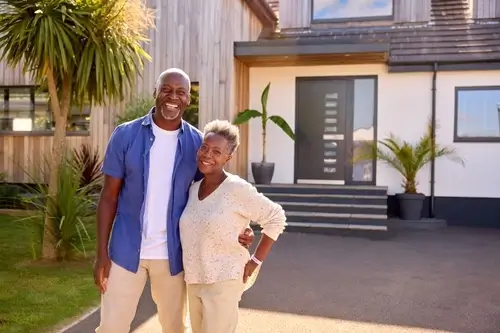
Retirement signifies not merely the cessation of a professional trajectory but rather the inauguration of an entirely novel chapter—one that many retirees find synonymous with the pursuit of a second home. Whether it be an idyllic beachside retreat, a rustic mountain cabin, or a snug urban haven, procuring a second residence during one's golden years is a venture laden with promise.
1. Reflecting on Lifestyle:
As a retiree, your lifestyle takes center stage in the decision to buy a second home. Consider what you want from this new property. Do you crave the tranquility of nature, the vibrancy of a city, or the serenity of a coastal breeze? Reflecting on your preferred lifestyle will guide you towards a location that perfectly complements your vision for retirement.
2. Financial Considerations:
One of the first steps in purchasing a second home is evaluating your financial readiness. Work with a financial advisor to assess your retirement income, expenses, and potential mortgage options. While some retirees may choose to pay in full, others may explore financing options. It's crucial to strike a balance between investing in your dream home and ensuring financial security throughout your retirement.
3. Weighing the Pros and Cons:
Owning a second home comes with both benefits and responsibilities. On the positive side, you gain a retreat, a potential rental income source, and a legacy for your loved ones. On the flip side, there are maintenance costs, property taxes, and the logistical challenge of managing two homes. Weighing these pros and cons will help you make an informed decision that aligns with your retirement goals.
4. Location, Location, Location:
Choosing the right location is paramount when buying a second home. Consider factors such as climate, proximity to family and friends, healthcare facilities, and recreational opportunities. Think about accessibility; a location that offers a perfect blend of serenity and convenience can enhance your retirement experience.
5. Downsizing and Streamlining:
Downsizing is a common theme in retirement, and it extends to second home ownership. Evaluate your current needs and lifestyle to determine the ideal size for your second home. A smaller, more manageable space not only reduces maintenance efforts but also aligns with the freedom and simplicity that retirement often heralds.
6. Community and Social Connections:
Retirement doesn't mean isolation; in fact, many retirees actively seek communities that resonate with their interests and values. When choosing a location for your second home, explore the local community. Attend events, visit local establishments, and gauge the potential for building social connections. A vibrant community can greatly enrich your retirement experience.
7. Test the Waters:
Before committing to a second home, consider spending extended periods in the area. Renting a property for a few months allows you to experience day-to-day life, assess the local amenities, and confirm that the chosen location truly aligns with your retirement dreams. It's a practical way to ensure your second home is a perfect fit.
Buying a second home as a retiree is an exciting adventure that requires careful consideration and planning. By reflecting on your lifestyle, evaluating your financial readiness, weighing the pros and cons, choosing the right location, downsizing, considering community connections, and testing the waters, you can embark on this journey with confidence. Your retirement years deserve to be adorned with the fulfillment of lifelong dreams, and a second home might just be the key to unlocking that golden chapter of life.

